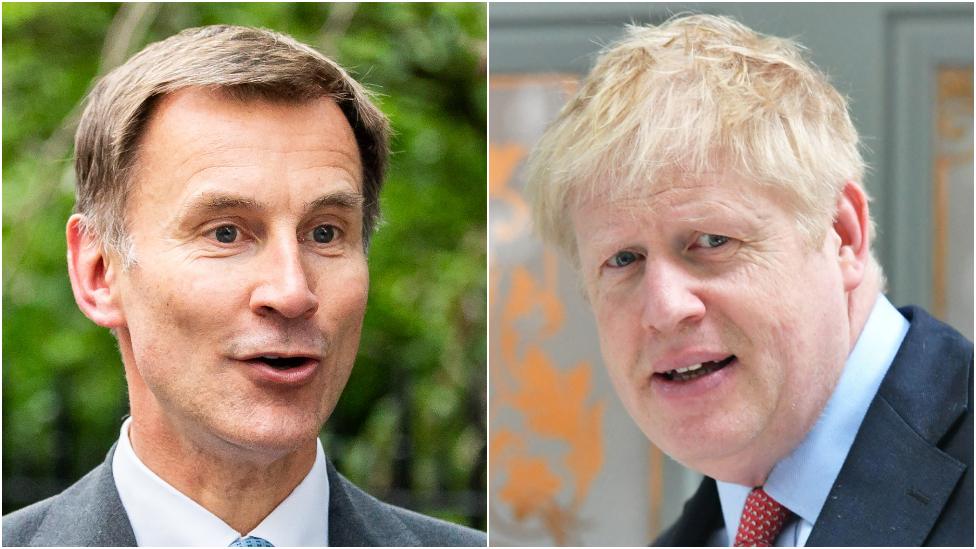Tory tensions over keeping the UK intact
- Published
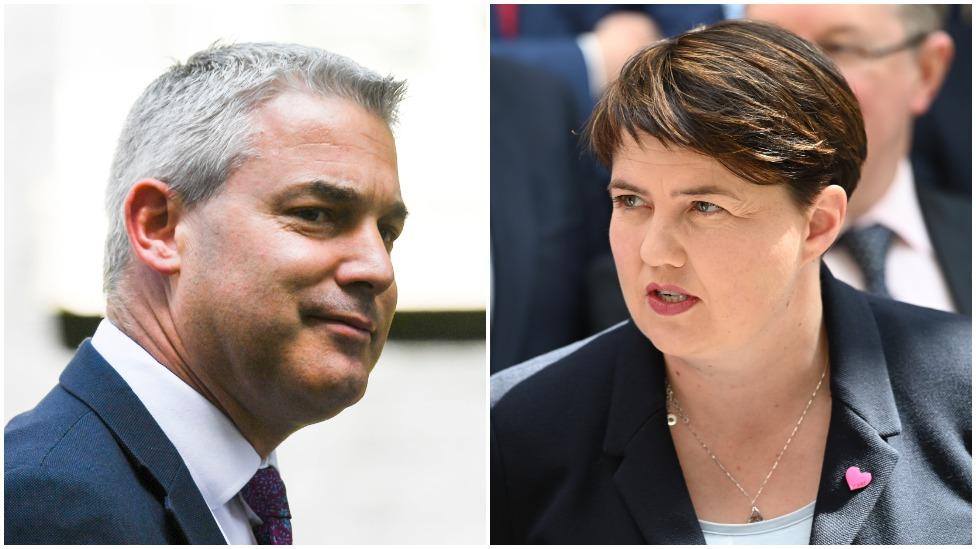
Brexit Secretary Stephen Barclay said not delivering Brexit would threaten the union, while Ruth Davidson said it should not be delivered at the expense of the union
Just how committed is the Conservative Party to keeping the UK together?
That might seem an odd question to ask of a party that is properly known as the Conservative and Unionist Party.
The clue is in the word Unionist, right?
Yes, but the party's commitment to leaving the European Union is in potential conflict with its commitment to keeping the UK union intact.
That's not always obvious when you listen to some leading Conservatives.
Theresa May said she would always fight to strengthen and sustain what she called "this precious Union" of nations.
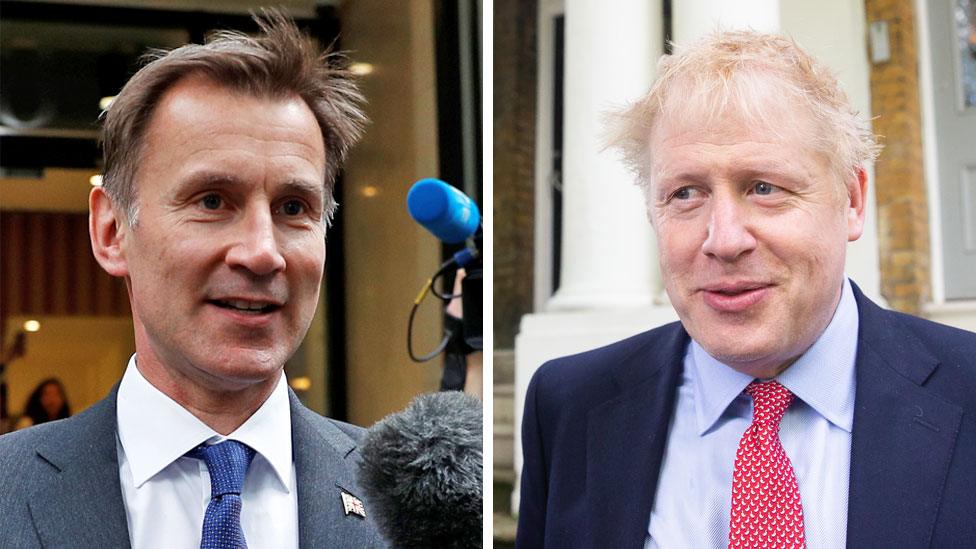
Jeremy Hunt and Boris Johnson are the final two MPs vying to be Tory party leader
The final two candidates in the race to succeed her as Tory leader and prime minister have made similar pledges.
Boris Johnson said that, should he win, he would put "strengthening our Union at the heart of everything", external.
Jeremy Hunt has described himself as "passionately committed to the Union" and promised to resist indyref2.
So where's the conflict?
What Johnson and Hunt do not do is rule out a no-deal departure from the EU.
Both candidates want to negotiate new terms for withdrawal, which the EU insisted at its June summit would not be possible, external.
That makes a no-deal departure more likely and some senior Conservatives (and many Scottish nationalists) think that in turn makes Scottish independence more likely.
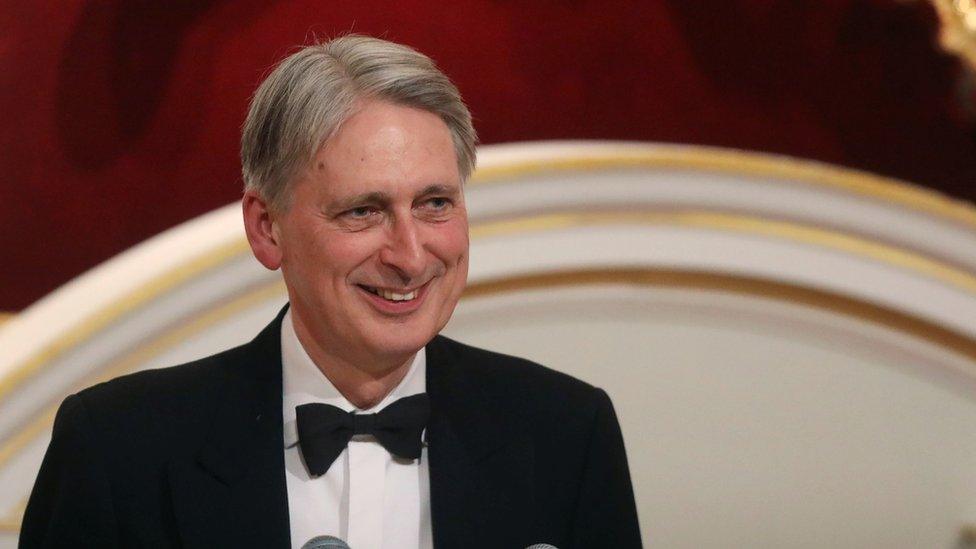
Philip Hammond said a no deal Brexit would "risk the Union and our economic prosperity"
The Chancellor Philip Hammond said in his Mansion House speech on Thursday, external that a no-deal Brexit would "risk the union and our economic prosperity".
The Scottish Secretary David Mundell has previously expressed similar views and the international Development Secretary Rory Stewart, said on Wednesday that preserving the union was one of the reasons he'd rule out no deal, external.
Others in Cabinet see things differently.
The Brexit Secretary Stephen Barclay said on Thursday "no Brexit, undermining democracy, or a second referendum would be a threat to the union"., external
For him, the possibility of Brexit not happening appears to be of greater concern and that may be more in tune with the views of the wider party membership.

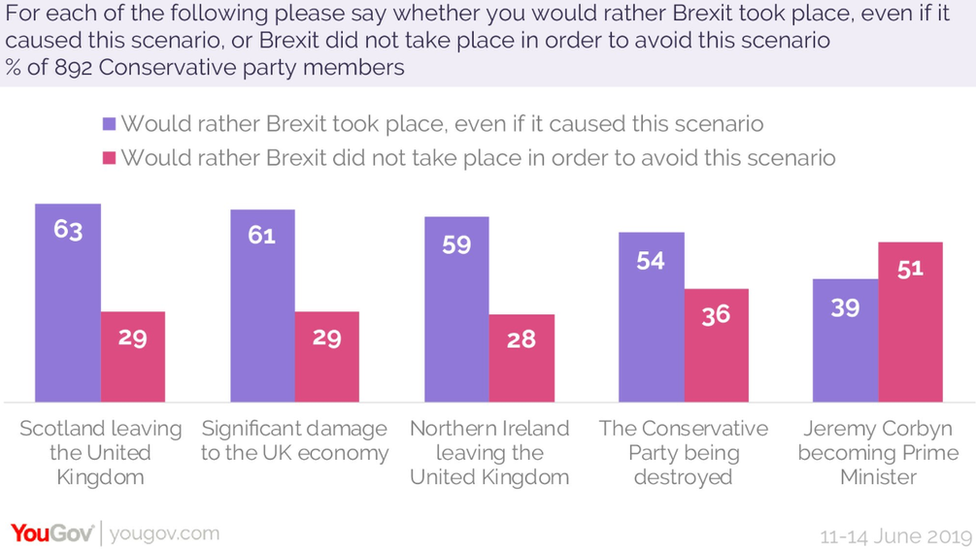

A YouGov poll of about 900 Tory members found that 63% of those surveyed would prefer Brexit to go ahead, external even it caused Scottish independence.
The same survey, published this week, suggested 59% would want Brexit even if it led to Northern Ireland leaving the union.
These findings are consistent with research carried out by academics at Edinburgh and Cardiff universities, external for the Future of England Study last year.
Brexit appears to be more important to the bulk of Conservative Party members than keeping the UK united.
I got a sense of this kind of thinking in conversations with voters on a recent visit to Hastings in East Sussex, where a majority opted to leave in the EU referendum.
One Brexit backing fisherman told me: "I'd like to see Scotland and [Northern] Ireland stay... but if they want to have their independence, it's up to them".
Difficult questions
All of which encourages the Scottish National Party and others who argue for another independence referendum.
They believe Brexit justifies indyref2, because a majority in Scotland backed remain and that a no-deal would increase public support for revisiting independence.
Others maintain that the more disruptive Brexit turns out to be, the less Scots will want to consider further constitutional change and the difficult questions over currency and border arrangements that come with it.
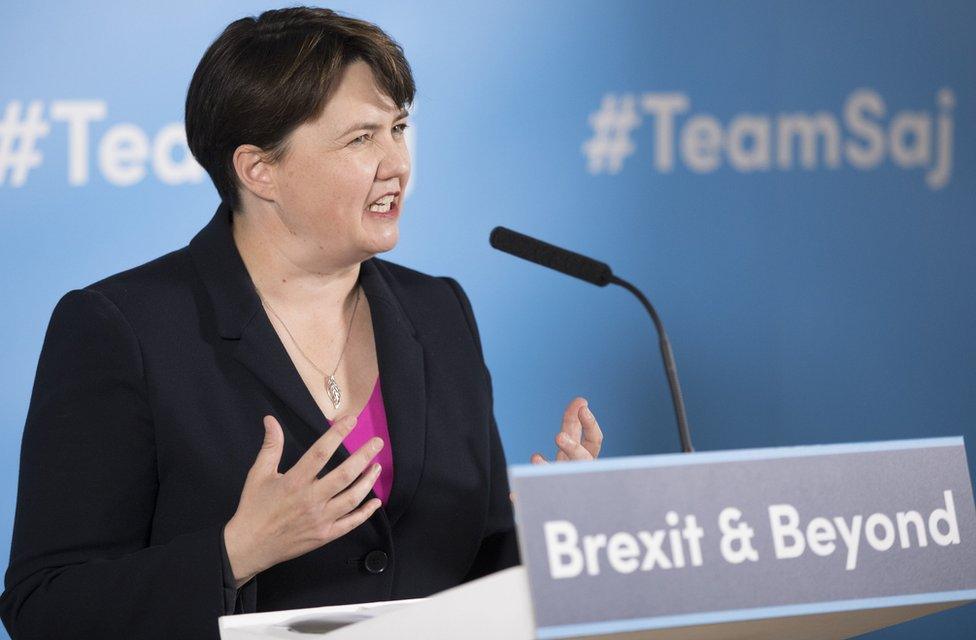
Ruth Davidson said Brexit should be delivered but not at the expense of breaking up the UK
That is not a chance the leader of the Scottish Conservatives, Ruth Davidson, wants to take having placed unionism at the heart of her politics.
In response to the YouGov poll she said: "There are a number of people in the Conservative Party that need to take a long hard look at themselves.
"Of course we've got to deliver Brexit but not at the expense of breaking up the United Kingdom".
It remains to be seen whether those twin objectives are achievable for a Tory Party in government and in turmoil over Brexit at Westminster.
It is also unclear how much influence Ms Davidson will have with the next prime minister having backed candidates other than Jeremy Hunt and Boris Johnson for the top job.
- Published12 June 2019
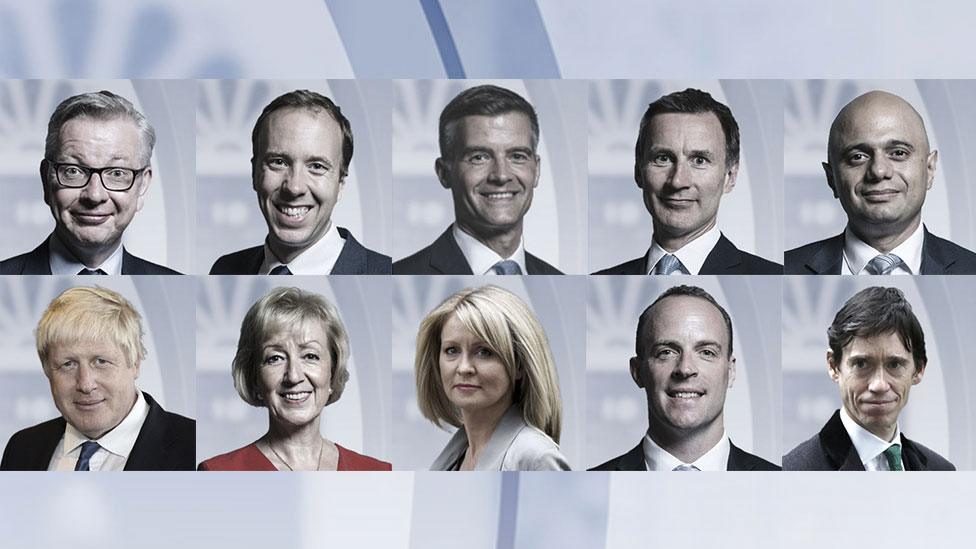
- Published27 March 2019

- Published20 June 2019
